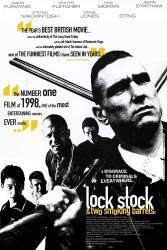Question: During the gambling game at the beginning, one of the rules is 'an open man can't see a blind man'. This seems an insane rule - it means that as soon as one player has their first win, and thus has more money than everyone else at that instant, he should always play blind. If others play open, they can't call him (that would be 'seeing' him), they lose if they fold, so all they can do is raise - and since he has more money, he can then raise back, and keep going until they are unable to raise further (and have to fold, because they still can't 'see' him). The only way to prevent this is to play blind themselves, so after the first win, EVERYONE would play blind. Is this really what's intended?
Answer: The open player can still "cover the pot", which means they bet all the money they have left and then place their cards face down on top of all that has been bet so far (hence cover the pot). The rest of the players then open a new pot and place their bets there. Once the new pot has been resolved, the player who won it compares their hand with the cards covering the old pot - the better hand wins the covered pot. This means if you keep playing blind you will likely lose those covered pots.
Question: After Rory lights the guy on the bar on fire, why does he just casually hang around afterwards? The guy was there with friends.
Answer: The implication is it's a hard as nails boozer where no-one calls the cops no matter what. Rory is a well-known face and no-one would want to mess with him.
Answer: Would you want to mess with a guy who just casually lit someone on fire without batting an eye?
No, but I'd call the cops.
Question: For the card game at Hatchet Harry's: one of the rules is that an open man can't see a blind one. I'm only familiar with "blind" referring to forced bets at certain spots on the table (e.g. the opening antes for Texas Hold 'Em). For this it seems to be a designation of the bet, for example when Harry counters Eddie's 10K, open, with 20K, blind, which is then topped by 20K, open. Could someone explain to me what open/blind means?
Answer: First, keep in mind they're not playing poker. It's similar, but there isn't a check/bet/call. They put in money, and you have to match it, then it's back on the other guy to match or raise. If you "see" the last guys bet, you put in double, and the cards are shown. Yes, "blind" means you didn't look, "open" means you did.
Answer: When you play a poker hand blind (I think it's in 5 card draw poker) you bet without looking at your cards and so you don't get the chance to change any cards. The others that are betting against you (the opens) have seen their cards, exchanged as many of their 5 cards as they want but then have to double your bet amount.
Answer: They're playing "3-card Brag." In this game, to play blind, you're not looking at your cards when betting. There are certain advantages to this because you only have to put in half the bet while blind. When the round gets to 2 players remaining, if one person wants to "see" a player's hand, he doubles the previous bet and the hands are revealed with the best hand winning (in the event of a tie, the player "seeing" loses). If a player is "open", meaning he looked at his hand, he can not double the bet and "see" a blind hand, he can only bet or fold. The round continues until the blind hand sees or there is a fold. At any time a person playing blind can look at their hand and then continues playing as an open hand, without the blind advantages.
Question: What happens to Nick the Greek?
Answer: Its left ambiguous deliberately but he either decided to lie low after finding out he was involved in stealing Rory's weed or, more likely, Rory killed him.
Rory was dead, so Nick just escaped and was none the wiser.
Agreed. We see Nick on the phone with the 2 thieves who initially stole the guns. Nick tells them that he does not believe he will see the guns or the boys again, because he gave up the address to Rory, who was on his way to kill them, and ends up getting killed himself. So from what we saw, we can assume that Rory let Nick off the hook because he gave up the address to Eddy and friends.






Chosen answer: If you are playing blind, you obviously aren't allowed to see your cards, nor exchange any cards. So if I'm playing open, I've seen my cards (and only me) and after the first round of betting I can exchange some or all of my cards. Statistically I'm now going to have a much greater chance of having a better hand than the blind man. Both players know who's likely to have the best hand, so it's a very brave gambler that plays blind for more than a couple of rounds. Imagine betting hundreds or thousands of pounds on cards that you haven't seen versus a hand that your opponent has managed look at and change. The rule an open man can't see a blind man tries to even up the odds, and make the game more interesting. It's literal seeing, rather than poker terminology.
They are playing 3 card brag. Nobody can exchange cards regardless of whether they see or not.